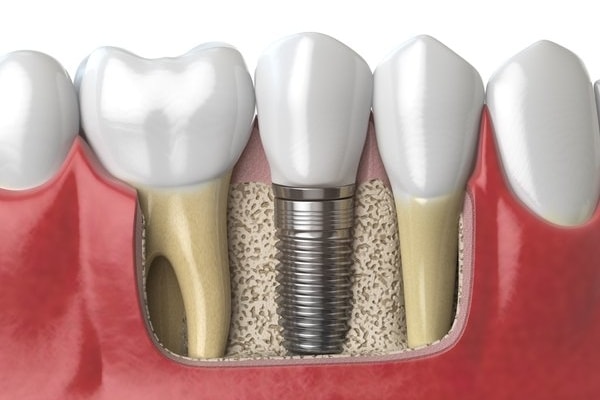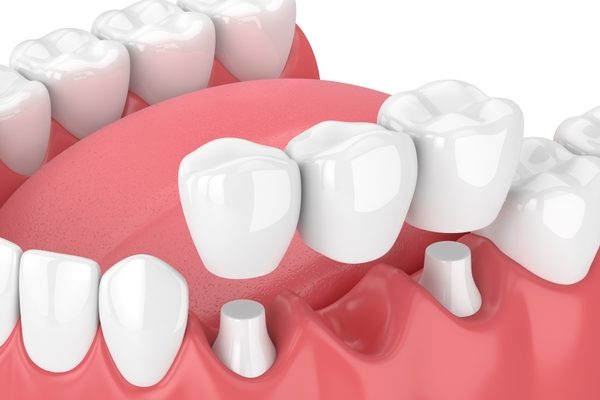I have a patient, Mr T, who suffered from ugly, darkened and loose teeth for years due to gum disease. A previous dentist told him his teeth could not be saved. They removed his teeth and replaced them with a complete removable denture. Although the treatment was correctly given, Mr T felt he was suffering even more. He could no longer bite into an apple or enjoy his favourite steak. The denture often dislodged during speech, which caused extreme embarrassment and affected his social and work life.
Fast forward to the present, Mr T can meet clients for business lunches confidently. He enjoys his favourite foods. This is the benefit of implant dentistry. Dental implant treatment produces satisfying outcomes. Dental implant restorations restore the patient’s smile, function, and even confidence and self-esteem.
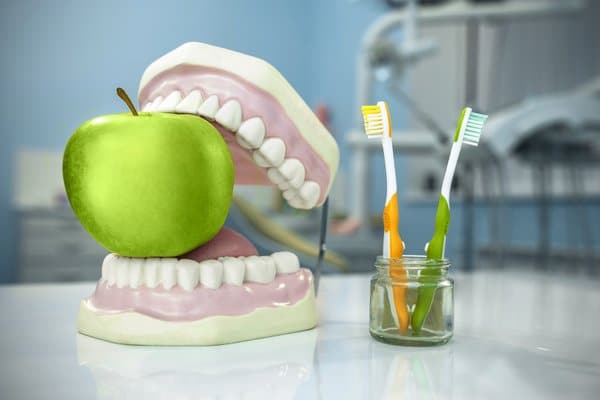
What Is A Dental Implant?
A dental implant supported restoration is a one-for-one replacement of a missing tooth. Although we are still unable to grow a tooth, dental implant restoration mimics nature as closely as possible.
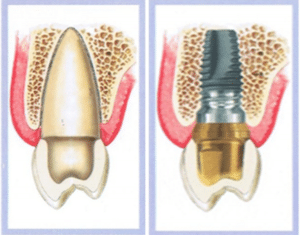
How Were Dental Implants Discovered?
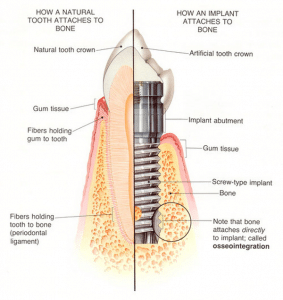 Over 50 years ago, Swedish research scientist and surgeon, Professor P-I Branemark, M.D., Ph.D., developed the concept of dental implant osseointegration. where living bone can bond biologically with pure threaded titanium.
Over 50 years ago, Swedish research scientist and surgeon, Professor P-I Branemark, M.D., Ph.D., developed the concept of dental implant osseointegration. where living bone can bond biologically with pure threaded titanium.
The bond between bone and titanium serves as a firm, long-lasting anchorage to stabilise dental bridges and other body replacement parts.
Since 1965, thousands of patients have been successfully treated with dental implants in Sweden, and now throughout the world. The treatment was first introduced to the United States in 1982, and in 1988, the American Dental Association granted full approval of this method of treatment. In Singapore, this treatment has been carried out since 1986.
How painful is getting a dental implant?
Asian patients were slower to accept dental implant treatment due to the need for surgery and the fear of pain during and after treatment. There are many pain-free techniques available now. Many of my patients are surprised at how comfortable dental treatment is, including implant surgeries. Dental surgeons like myself strongly believe in painless dentistry. I often remind patients that pain is part of our natural body’s defence, but pain can be properly managed.
Modern painkillers have fewer side effects and only need to be taken once a day. They are prescribed to patients 1 hour prior to surgery so the patient is comfortable during and after the procedure. Painkillers containing codeine can enhance the effects of the prescribed painkillers.
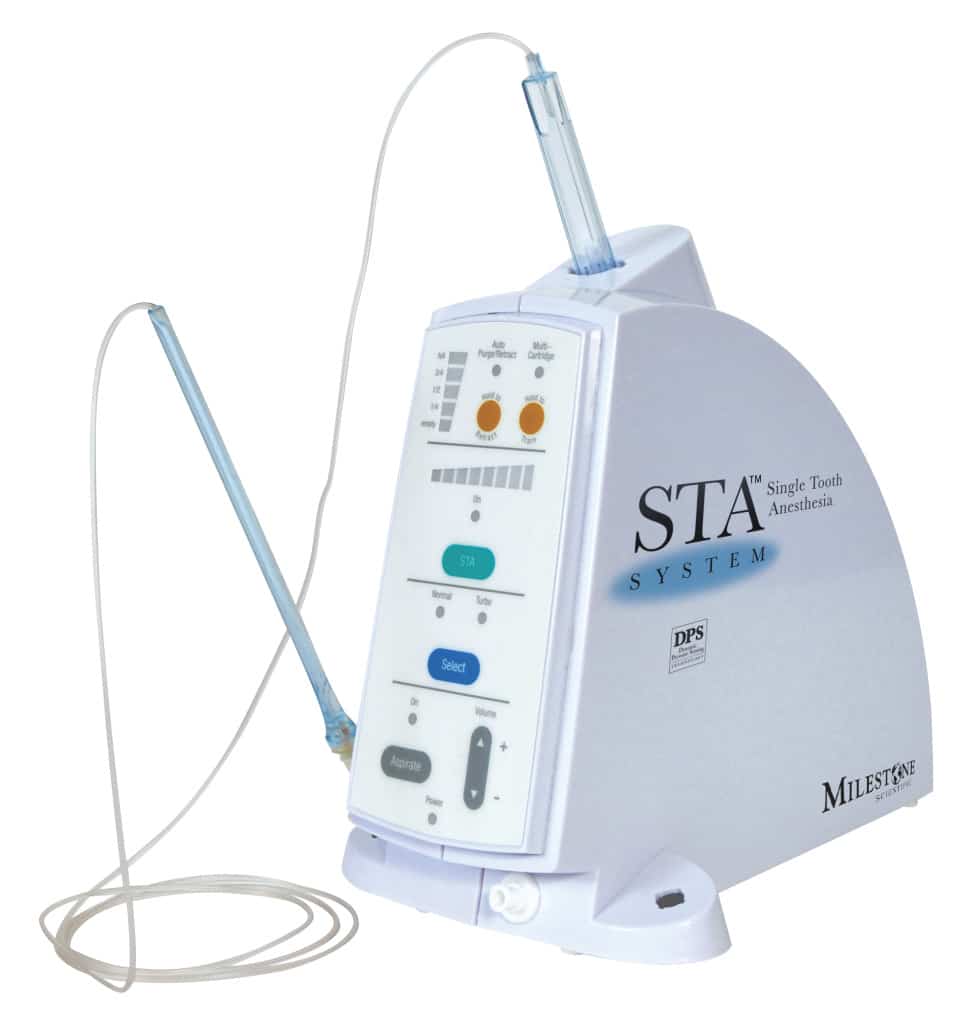
Painless injection systems such as The Wand® are also available. The Wand® is a computer-controlled dental injection. We use the computer to control the flow rate of local anaesthetic, making the injection slow, steady and comfortable. Usually, injecting anaesthetic too quickly causes pain. That results in bad experiences with injections. The Wand® removes this risk and can be reassuring for people with previous bad experiences. Patients can also enjoy the option of having sound blocking headphones with music during surgery to relax.
For patients with very bad dental phobia, dental implant treatment is still possible. Intravenous (IV) sedation can be used. The patient remains conscious during IV sedation and can understand and respond to requests from the dentist. IV sedation induces a state of deep relaxation in most people and a feeling of not being bothered by what’s going on. Secondly, the drugs can produce either partial or full memory loss (amnesia) during surgery. As a result, time appears to pass very quickly and patients do not recall much, or even nothing at all, of what happened.
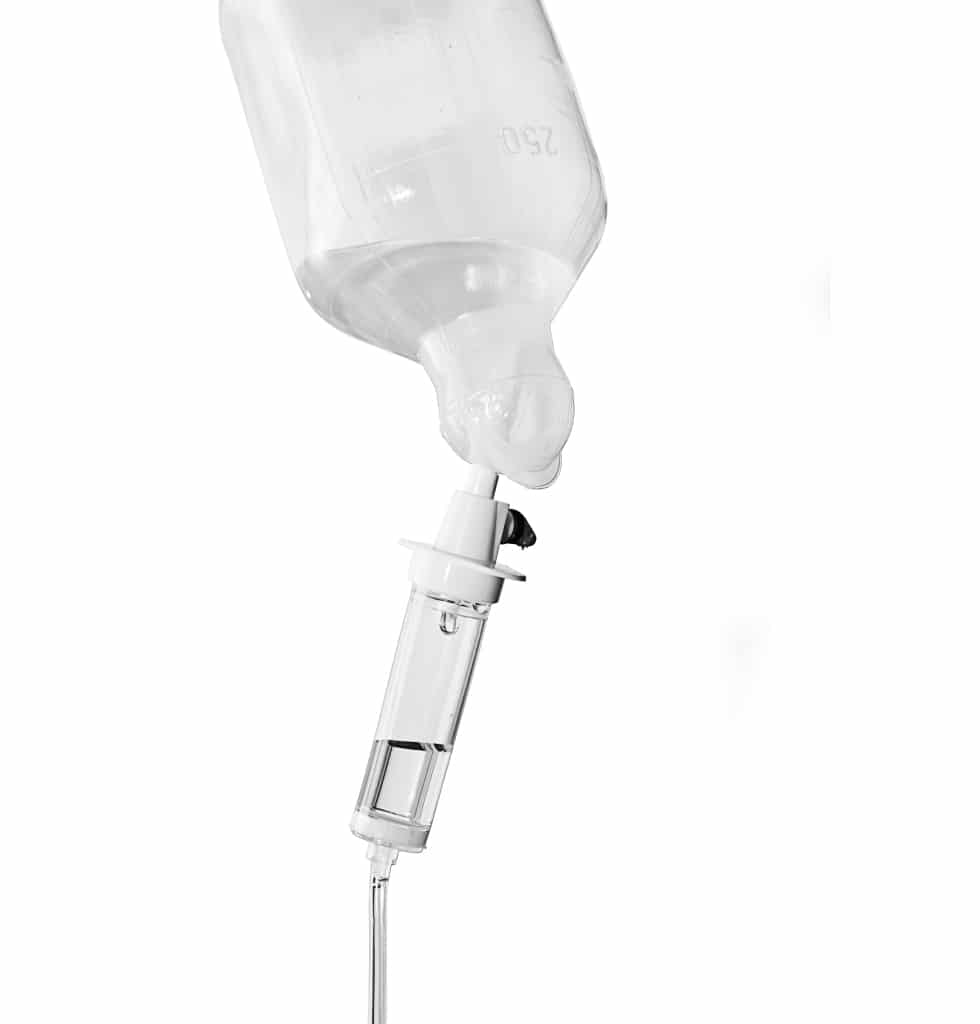
How Long Do Dental Implants Last?
Success rates of implant surgeries are in the high 90 percentile and long-term survival of these restorations range from 85%–100% over 10–25 years. Do be cautioned that these findings only reflect reputable brands. There are thousands of implant brands out there. Only reputable brands carry out long-term studies of their systems.
Implant dentistry has advanced much over the years. Dental implant restorations are predictable and have become a routine treatment in 21st-century dentistry. Dental implants with enhanced (rough) and titanium-zirconium surfaces are now the systems of choice.
Other than price, one should consider the experience of the practitioner and the systems the clinic uses when choosing a dentist.
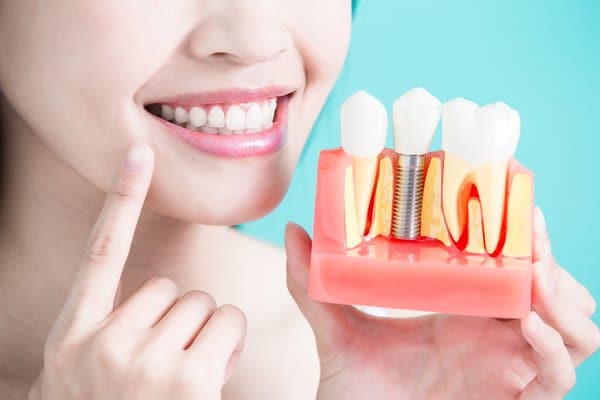
Present day implant dentistry is more concerned with gingival (gum) aesthetics. Dentists are concerned with copying the natural contour of neighbouring teeth and preserving bone. A successful outcome is where the implant-supported crown is indistinguishable from a natural tooth.
How Long Does It Take For Dental Implants To Heal?
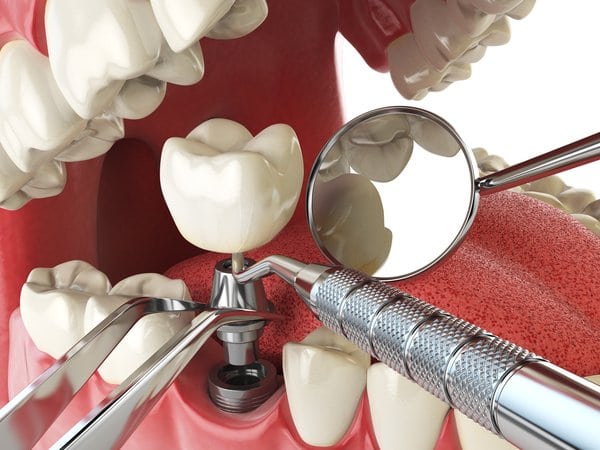
Dental implant treatment times have shortened. Usually, we place the implant in the bone, and then a crown over the metal implant. In the past, the final crown was only placed after 6 months of healing time. Today the crown is placed after 2–4 months of healing time if the patient has good bone quality and other favourable factors.
How Long Is The Dental Implant Surgery?
Dental implant surgery is a simple routine surgery. For single implant placements, surgeries are completed within an hour. The surgery is highly controlled and gentle.
What to Expect After Dental Implants?
Most patients feedback minimal discomfort post surgery with a pain level of 1–2 on a pain scale of 1–10, with 10 being the worst. We placed a dental implant on my husband’s lower jaw 9 years ago. Surprisingly, he did not feel any pain nor did he need painkillers the next day. (And no, he’s not Superman! He’s a superb man though)
We tell our patients to expect some bleeding for 2–3 days after the dental implant surgery, and swelling if we carry out a bone graft at the same time.
The Dental Studio discharges patients together with:
- Spoken and written post-operation instructions
- An emergency contact
- A care kit containing a soft toothbrush
- An ice pack to reduce any swelling, and
- Medications.
Dental implant patients can resume normal diet in a week, and only need a soft diet for the first 2–3 days. We often advise refraining from exercise and swimming for a week. Smoking is a complete contraindication as it affects the healing and success rate of the dental implant treatment.
Caring Tips For Dental Implant Patients
- We encourage patients to return for reviews after 1 week, 1 month, 3 months and 6 months after restoration. This helps us assess the patient’s ability to maintain their implant restoration(s), and pick up any problems early.
- You can clean dental implants the same way you clean natural teeth. Clean the gaps between teeth with dental floss or an interdental brush.
How Long After Dental Implants Can I Eat Normally?
After dental implants, patients are encouraged to resume a normal diet (after all, the point of dental implant treatment is to restore function). However, avoid biting on hard brittle substances such as bones, ice and very hard nuts. Extreme stress can fracture the abutment screw within.
How To Know If My Dental Implant Is Failing?
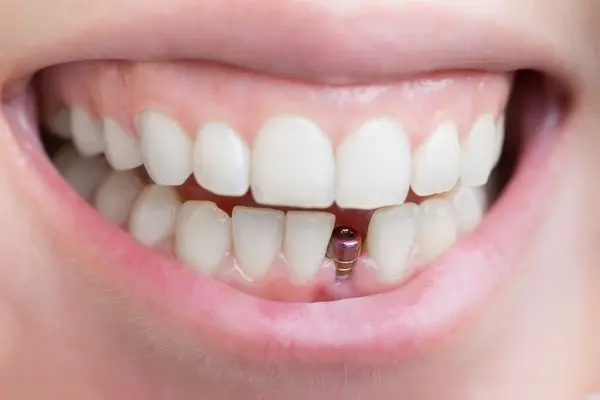
Our mouth is always full of bacteria. A dental implant does not decay, but it can suffer from gum disease, which results in the loss of supporting bone. This is known as peri-implantitis.
Dentists can treat peri-implantitis and save the implant if detected early. However, if it goes undetected, the bacterial accumulation can result in bone loss and gum swellings. The implant can become mobile and eventually lost.
This is why it is important for patients to return for regular reviews (our first 3 reviews are packaged into the treatment so that patients are aware we are committed to helping them maintain their implants). A responsible clinician also treats gum disease FIRST before carrying out dental implant treatment. Gum disease bacteria can migrate from a tooth surface to an implant surface.
Are There Many Choices Of Dental Implant Restorations And Treatment Options?
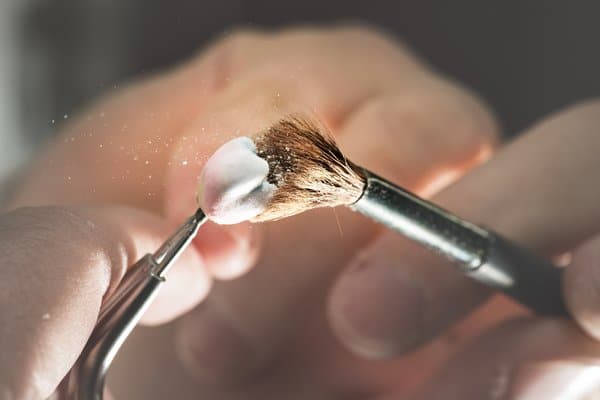
Zooming back to Mr T, he had 5 dental implants placed in the lower jaw at the chin region. I adjusted his old full denture into a temporary bridge and anchored it to the dental implants immediately after surgery. This solved Mr T’s woes with his denture. After another 3 months, he received his new implant-supported bridge and he tells me he has been given a new lease of life.
There are many other restorative options in implant dentistry to suit many different patients. For the more financially conscious, just 2 implants can secure a full denture so strong that the patient can bite into an apple without the denture dislodging.
Over the years, I have restored many edentulous patients and seen how dental implants have restored not only oral function but improved all aspects of the patients’ lives. Dental implant treatment is satisfying, not only for the patient but also for the dental practitioner. I look forward to changing more lives in the years to come, one smile at a time.

